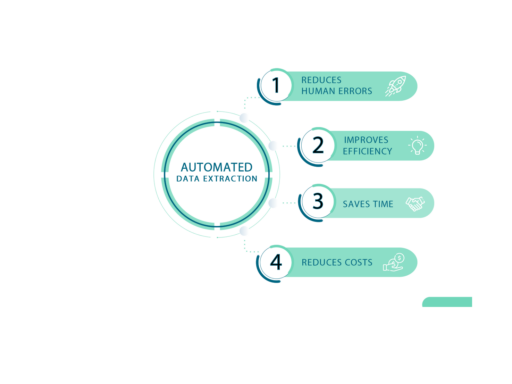
The global transformation to a remote work model during the COVID-19 pandemic brought with it unforeseen challenges and opportunities. Among the sectors that experienced a sudden boost, personal printers topped the list. Companies like Epson witnessed a spike in sales, highlighting the continued reliance on physical documentation, even in a digital age.
However, a concern for these companies, including Epson, has been the increasing digitalisation and the long-term stagnation they face in mature markets due to declining populations. In a rapidly advancing digital age, how do companies maintain relevancy and growth? The answer lies in smart digital solutions like PaperOffice DMS.
Adapting to Global Trends with Smart Solutions
Despite the challenges, Epson has strategically tapped into emerging markets. In fiscal 2022, the Middle East, Turkey, and Africa were standout performers. Leveraging its success in India, Epson inaugurated a specialized subsidiary in Dubai, aiming to formulate and manage its strategies in the Middle East directly. This move showcases the importance of recognizing potential in untapped markets. As Yasunori Ogawa, an executive at Epson, aptly puts it after the company’s recent quarterly results, there is “tremendous potential” in the Middle East since their products are not yet widely distributed.

However, success isn’t solely about expansion. It’s about integration with platforms like PaperOffice DMS. Imagine integrating PaperOffice’s AI-driven processes into Epson・s personal printers. It offers the best of both worlds. While businesses in the Middle East or anywhere else can efficiently print documents, they also have the convenience and security of an AI-based document management system, ensuring that their workflows remain seamless and efficient. This also accentuates the company’s drive towards sustainability and reduced waste.
The Power of AI-driven Processes in Printing
Facing a considerable decline in their operating profit and revising their full-year forecast, Epson, like many, acknowledges the importance of adapting. PaperOffice, with its market-leading AI-document processing and AI-based document storage, could be the game-changer for companies like Epson. It merges the physical with the digital, allowing users to print essential documents while ensuring they’re stored digitally, accessible anytime, anywhere. The hybrid storage model of PaperOffice can leverage the robustness of Epson・s hardware, storing information either in PaperOffice’s high-secure EU cloud database or on local storages, including NAS systems.

Another admirable initiative by Epson is its PaperLab machines, which recycle used office paper into blank sheets. This innovation aligns perfectly with PaperOffice’s emphasis on digitization and sustainability. If integrated, users could use the PaperLab machines, minimize wastage by recycling paper, and use PaperOffice’s AI-driven processes for all digital needs, thus promoting a greener, more sustainable work environment.
PaperOffice’s DMS system would enable companies like Epson to highlight the environmental aspect of their products, driving the narrative of sustainable digitalisation forward. PaperOffice doesn’t just offer DMS; its suite of features includes ECM, Knowledge Database, HelpDesk, AI Bot Co-Worker, Proactive Tasks, and more. Such integrations would not only enhance the value proposition of Epson’s products but would also enhance their ecological footprint.
The Road Ahead: Building Resilient Businesses in the Age of Digital Transformation

It’s a fact that businesses worldwide are feeling the seismic shifts caused by rapid digitalization. The transition from physical to digital, prompted in part by the COVID-19 pandemic, has compelled enterprises to adapt or face obsolescence. For a company like Epson, challenges are numerous, but with challenge comes opportunity. By leveraging AI-driven solutions like PaperOffice DMS, printer industries can usher in a new era of operational efficiency and eco-responsibility.
Expanding Horizons: The Strategic Move into New Markets

Epson’s foray into growth areas like the Middle East, Turkey, and Africa signals a visionary approach to expanding market reach. Yet, entering emerging markets requires more than just distribution channels. It demands a keen understanding of local business needs and a robust digital infrastructure to cater to them.
Incorporating a world-class document management system like PaperOffice can make all the difference. A region-specific subsidiary empowered by PaperOffice・s features, such as ECM, Knowledge Database, and CRM, can cater to local businesses, ensuring documents are securely stored, efficiently managed, and easily accessible. By aligning with solutions like PaperOffice, Epson can position itself not just as a printer supplier, but as a comprehensive solution provider aiding businesses in their digitalisation journey.
Bringing AI to the Forefront of Business Operations
Inflation and other economic factors may be transient, but the drive towards efficiency is perpetual. As Epson looks forward to better financial conditions in the coming months, integrating AI-driven processes can further elevate their offerings. PaperOffice, with its revolutionary AI capabilities, can automate and digitize workflows, making operations smoother and more cost-effective.

Moreover, the emphasis on reducing waste and promoting sustainability can find an ally in PaperOffice’s digital solutions. The company’s innovative PaperLab machines, which emphasize environmental responsibility, fit perfectly within the eco-friendly narrative of PaperOffice. By reducing the need for physical prints and promoting digital storage, businesses can achieve a balance between necessary printouts and digitalisation.
The PaperOffice Edge: More Than Just a DMS
For businesses aiming to reduce overheads and enhance productivity, PaperOffice offers more than just a Document Management System. Its Proactive Tasks feature, for instance, can automatically notify customers about delivery dates or delays, offering unparalleled customer service. With the seamless integration of features like Outlook Email and Appointment Management, Epson can enhance its value proposition in new markets, catering to both individual and commercial customers.
Conclusion
Digitalisation is not about replacing the old with the new; it’s about integrating the best of both. For printer companies grappling with the challenges of an increasingly digital world, platforms like PaperOffice provide an avenue to remain relevant, efficient, and most importantly, sustainable.
To truly grasp the transformative potential of PaperOffice, readers are encouraged to request a free presentation at www.paperoffice.com, where they can experience firsthand the power of automation and AI-driven processes that the platform brings to the table.
Note: Before moving forward, understand that while PaperOffice can seamlessly integrate with a variety of systems and platforms, any direct integration with Epson or any other brand would require mutual agreement and collaboration between the involved parties.
Final Words: Embracing the Future with PaperOffice
The march towards digitalization is unstoppable. Yet, as Epson’s endeavors show, there’s immense potential in merging the physical with the digital. By leveraging the power of PaperOffice’s AI-driven DMS and other features, businesses can harness the best of both worlds, offering solutions that are efficient, eco-friendly, and tailored for the future.
For those intrigued by the transformative possibilities that PaperOffice can bring to your business, visit www.paperoffice.com. Discover the potential of automation and digitalisation firsthand and ensure that your enterprise is future-ready.
Disclaimer: While the synergies between Epson and PaperOffice are discussed, it’s essential to recognize that any real-world collaboration would be contingent on mutual agreements and technical compatibilities between the entities involved.
I am a dedicated content writer at PaperOffice, specializing in creating insightful articles about document management and automation. With a focus on simplifying complex topics.








